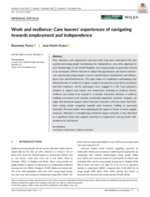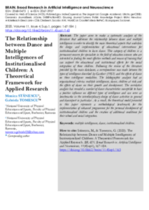Racial disparity in the Ontario child welfare system: Conceptualizing policies and practices that drive involvement for Black families
This paper documents the alignment between the circumstances created by anti-Black racism at institutional, provincial, and federal levels and the seemingly race-neutral eligibility criteria embedded within Ontario child welfare, which results in disproportionate reporting of Black families.




